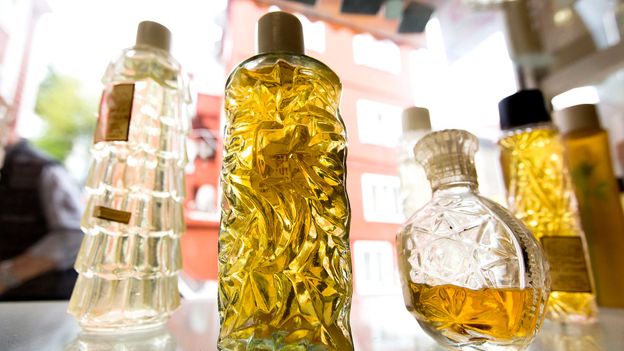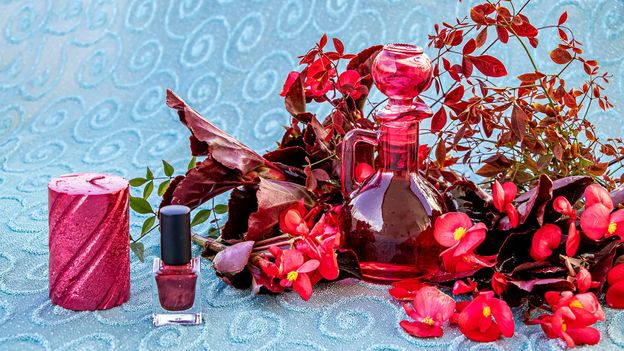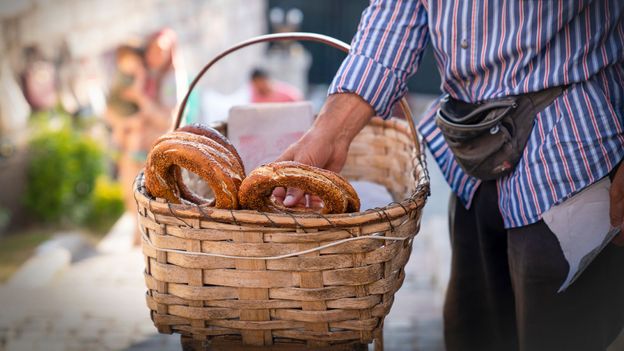Ottoman- Era Cologne Sanitizer Symbol of Turkish Hospitality Used to Fight Covid: 'Kolonya' [View all]
For hundreds of years, this Ottoman-era cologne has been synonymous with Turkish hospitality. Now, it’s being used to fight coronavirus. By Jenna Scatena, BBC News, 8 April 2020.
As commercial hand sanitisers run dry in the US and Europe, people in Turkey are turning to a traditional, aromatic fragrance that has taken on a whole new relevance amid the coronavirus pandemic: kolonya.
Meaning “cologne”, kolonya has been a treasured symbol of Turkish hospitality and health since the Ottoman Empire, and it’s often described as Turkey’s national scent. Traditionally, this sweet-scented aroma made with fig blossoms, jasmine, rose or citrus ingredients is sprinkled on guests’ hands as they enter homes, hotels and hospitals; when they finish meals at restaurants; or as they gather for religious services. But unlike other natural scents, this ethanol-based concoction’s high alcohol content can kill more than 80% of germs and act as an effective hand disinfectant.

- Sales of kolonya, Turkey's "national scent", have soared since the start of the pandemic because it is also an antiseptic.
So, when Turkey’s Minister of Health championed kolonya’s capacity to fight the coronavirus on 11 March, it not only inspired a wave of national media attention touting the cologne’s anti-Covid-19 powers, but also caused queues stretching nearly 100m to quickly form at chemists and stores across Turkey. In fact, since Turkey’s first confirmed coronavirus case in mid-March, some of the nation’s main kolonya producers have said that their sales have increased by at least fivefold.
Since Turkey’s first confirmed coronavirus case in mid-March, kolonya sales have increased by at least fivefold
“Kolonya is effective at protecting against coronavirus because when it contains at least 60% alcohol, it breaks down the virus’ hard shell,” said Dr Hatira Topaklı, a family physician in Istanbul who explained that most kolonya products contain 80% alcohol. Topaklı also notes that commercial disinfectants aren’t as common in Turkey as they are in other countries. “[Kolonya is] additionally effective because it’s something that many people already have and is a part of their daily routines. They don’t need to learn a new way to protect themselves against this virus.”
To meet the fragrance’s surging demand, on 13 March the Turkish government stopped requiring ethanol in petrol in order to boost the production of kolonya and other household disinfectants, specifically to fight coronavirus.
According to Kerim Müderrisoğlu, CEO of Rebul Holding, which owns Atelier Rebul – one of the oldest and most famous commercial kolonya brands in Turkey – the production of kolonya is rather simple. First, pure ethanol is made from fermented barley, grapes, molasses or potatoes and is mixed with distilled water. Then, a natural fragrance such as magnolia, lemon or rosemary is added, and it’s left to sit for a three-week maturation period before being bottled. As many of us apply kolonya alone while self-quarantining, it evokes a nostalgic sense of closeness and taking care of one another.
As a deep-rooted custom of hospitality and symbol of good health, kolonya provides more than a practical disinfectant – it’s a source of comfort for many of my Turkish friends here at a time of uncertainty....
More, http://www.bbc.com/travel/story/20200407-turkeys-unique-hand-sanitiser

- The tradition of kolonya derives from rose water and it is a mixture of ethanol, essential oils and natural fragrances.
_______________________
*Turkey's Ancient Tradition of 'Paying It Forward,' BBC News, March 2019
http://www.bbc.com/travel/story/20191125-turkeys-ancient-tradition-of-paying-it-forward

- Giving of bread (ekmek) is of special importance in Turkey.